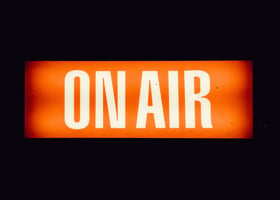You could be forgiven for thinking the answer to this question is relatively straightforward.
The usual advice is for brands to avoid staying quiet during a crisis.
In fact, it is a golden crisis communication training rule.
But one organisation has decided that doing nothing and saying little is the best approach during its recent time in the spotlight.
And it is probably the right decision.
Corona beer has found itself in the uncomfortable and unusual position of being linked to a global health crisis simply because it shares a similar name to the deadly coronavirus.
According to Google Trends, searches for ‘corona beer virus’ surged by 2,300 per cent between January 18 and 26. Searches for ‘beer virus’ increased by 744 per cent and there was a 3,233 per cent increase in searches of ‘beer coronavirus’.
There have additionally been countless memes and jokes on social media and promotions playing on the association - a pub in Scotland offered a free face mask with every bottle of Corona it sold over the weekend, while a bar in New Zealand has been criticised for advertising deals on the Mexican lager ‘while the pandemic lasts’.
That corona virus has everyone and everything shook #coronavirusmemes #2020virus pic.twitter.com/SccOWCK0zw
— Polo Gee™ (@StoneyPolo) January 30, 2020
And this, in turn, has moved the link from online channels to mainstream media.
Interestingly, despite the surge in searches and misinformation, the Corona social media accounts have stayed silent and Constellation Brands, which distributes the beer, in the U S has produced only the briefest of responses, telling PR Week that it isn’t responding to the conversation on social media and that consumers “by and large understand that the virus has nothing to do with our beer or our business.”
And although that goes against usual crisis media management approaches, it is probably the best tactic here.
Why?
Well, while there must be more concern within the company than its brief comment suggests, it seems unlikely that people genuinely believe there is a link between the beer and the spread of the virus, despite the rise in online traffic.
The surge in search numbers could be driven by people searching ‘corona beer virus’ for fun or out of curiosity, while Google’s search engine automatically suggests searches based on popular terms.
A key consideration will also have been that the company’s stock price has remained steady despite the unwanted association.
Equally, saying more could have presented a risk of its own, with the possibility that the brand was seen as trying to use the link to the virus opportunistically or could have given fresh impetus to a small part of a much bigger global news story.
While silence, or saying little, is rarely a good move in crisis media management, it seems that Corona has rightly judged there is little immediate risk to its long-term reputation here.
And that’s the key point. Brands don’t always need to respond to negative comments or sentiment on social media.
It is crucial they consider if something is really a crisis, particularly on social media, and whether responding will give impetus to an issue which is likely to otherwise disappear.
The other lesson here is that a brand doesn’t necessarily have to have done something wrong to face a social media storm or potential crisis media management incident.
Sometimes it can just be down to unfortunate circumstances, such as an uncomfortable association with your name.
And Corona is not the first brand to experience this. ISIS, a mobile wallet, changed its name to Softcard after the association with the violent militant group.
ISIS Pharmaceuticals originally resisted calls to change its name but is now known as Ionis Pharmaceuticals. Its spokesperson told The Guardian in 2015: “When you talk about the company you want people to immediately think about the incredible work you’re doing to deliver transformational drugs to patients ... not as an unfortunate namesake.”
Corona is unlikely to need to take a similar approach, but it will undoubtedly be keeping a closer eye on the global health story than its response suggests.
Download our FREE eBook to find out more about planning for a crisis. It includes a checklist to helping you identify the right spokesperson, messaging templates and a risk register to help you identify your organisation’s vulnerabilities.
Media First are media and communications training specialists with over 30 years of experience. We have a team of trainers, each with decades of experience working as journalists, presenters, communications coaches and media trainers.
Click here to find out more about our journalist-led crisis communication training courses.




